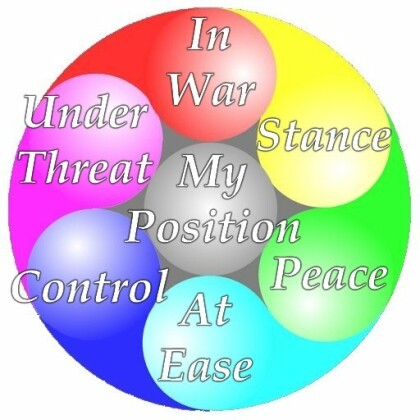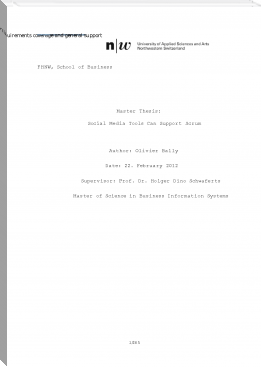Art of War once Moore, Sander R.B.E. Beals [leveled readers TXT] 📗

- Author: Sander R.B.E. Beals
Book online «Art of War once Moore, Sander R.B.E. Beals [leveled readers TXT] 📗». Author Sander R.B.E. Beals
The only competition was against the creator of the puzzles, this wizard behind the curtain, who remained unseen. He didn't care about winning (unless maybe by selling millions of copies of the game) but he could never defeat you in the game: if a solution evaded you, time and intuition were on your side to hand you the solution sooner or later. And you needn't bother about not getting ahead or having to start over and over again: every level had an entry code, which finishing the previous level gave you, and of course the web held that list, so you could always cheat if you were really stuck.
The one thing that enables strategy is the human mind: I've used this story earlier on, but it is quite descriptive here. A classmate of mine once 'beat' the teacher in an intellectual rather than a physical sense: when given a programming assignment along with the rest of us, he looked it over and saw something in it that none of the class and not even the teacher himself had recognized. His completed program did exactly what the teacher had asked for, but it did so in a way that was totally different from the standard solution the teacher had in mind. Even more so, it performed in a manner so the poor guy had to publicly admit in class that he'd been beat, and couldn't figure it out! you could literally hear the respect in his voice when he told us all how 'the Mole' had outdone him! So, at least his ignorance amused us!
 A similar victory later was mine, when the teacher allowed us the privilege of using programmable calculators for the exam. Not really setting out to dazzle the class, but much more enjoying the prospect of programming rather than studying, I set to work to diligently fill up the complete memory of my Casio FX-790P. I would, purely for my own personal enjoyment, write a BASIC program that could solve any question the teacher could throw at us!
A similar victory later was mine, when the teacher allowed us the privilege of using programmable calculators for the exam. Not really setting out to dazzle the class, but much more enjoying the prospect of programming rather than studying, I set to work to diligently fill up the complete memory of my Casio FX-790P. I would, purely for my own personal enjoyment, write a BASIC program that could solve any question the teacher could throw at us!
Now there was a lot of matrix algebra and stuff involved, but I got through it in time, with bytes to spare. As the exam arrived, I sat there, calculator top left of my desk, and the set of sheets in front of me. The signal came, and I looked over the exam. It soon became evident that if I just punched in the numbers and wrote out the answers, I'd be gone in 60 seconds flat! So I made the exercises with just the calculator part of the machine first, and then checked with the program: all right first time, I was gone in half the allotted time. And because it had been done so poorly by the class, the teacher upped the scores: A++!
2. PositionThis, if anything, was the emphasis that Sun Tzu put into the Art of War: position is one of the most important parts of strategy. That such a stance holds not only in War, but Life in general may not be obvious to everyone. Still though, Sun Tzu was unequivocally seconded by my other great friend, Albert Einstein. He made Relativity into a household concept, and with it pinned down the position of both ends of any interaction: none are absolute, but any position is relative to any other, and dare I say even relative to the intentions of both. Where the Art of War sees the relationship as mainly opposing, this document will take a more generalist stance, even though I'm no general.
 Back from some 'Rest and Reflection': the image to the right was the eventual result of it, making the Art of Life the icing on my 'Cake of Reflection', the SevenSphere. If you want to define War, first of all you have to relate it to those concepts around it, that will lead you into and out of War. Enjoying the multitude of songs like for instance 'Princes of the Universe' by Queen, I'm now going to explain further how this all links together in my particular neck of the woods.
Back from some 'Rest and Reflection': the image to the right was the eventual result of it, making the Art of Life the icing on my 'Cake of Reflection', the SevenSphere. If you want to define War, first of all you have to relate it to those concepts around it, that will lead you into and out of War. Enjoying the multitude of songs like for instance 'Princes of the Universe' by Queen, I'm now going to explain further how this all links together in my particular neck of the woods.
Basically, at the start of this page I was 'in Peace', but not quite 'at Ease'. Too much writing and writhing in my chair had built up this cloud of static energy around me, that makes one feel not quite 100 percent. Removing the static-laden clothing, I made mince meat out of the remaining electrons by coupling them to copious amounts of hot water, that left me sufficiently neutral to actually be called 'at Ease'. From there on in, continuing the quest seemed easy enough.
Sure, I could have gone on without the shower and the sizable pot of dark coffee that just now reminded me of its readiness to do battle with a loud exhale of scorching steam, but that would mean I'd have to continue on to being 'in Control', which typically isn't my writing style. I prefer to linger at Ease, and from there consider my options time and time again as the Cosmos lifts me back into 'My Position'. It is kinda like the Buddha, one of Sun Tzu's illustrious colleagues said once:
The secret of health for both mind and body
is not to mourn the past, worry about the future,
or anticipate troubles, but to
live in the moment wisely and earnestly.
Now my graph above indicates a cyclic path, a given sequence of activities that leads us into and out of war. But why bother? As long as we mainly consider our own position, there is no need to go to war. It's like the Queen song that my media player is just now serving up from it's random play mode out of 2443 songs: “This could be Heaven for EveryOne”.
And that's not just a title match, but a set of heart-felt lyrics, which I might very well replicate here verbatim! Because in fact, it is all about what comes next. Next? Rage Against the Machine! Gotta fight something right? So why not fight the system? Yes, despite my peaceful nature, I do enjoy these raw and unadulterated emotions of Rage against the Machine, Queensrijche and System of a Down. But they'll never entice me to pick up a weapon to actually defeat the system that way....
Nope, I'm a Fullerian at heart: Richard Buckminster Fuller during his lifetime fathered a number of quotes that absolutely appeal to me! First of all, he told us to “Dare to be Naive”, which I just now read, but have been using adamantly for most of my life. The next one was a paraphrasing of the Art of Zen: “Don't fight the Forces, use them”. It is like using a huge enemy's momentum by sidestepping him and adding your own force to it, bringing him tumbling down. I thought he also could be attributed the quote of “Don't Fight the System, just design a better One”, but WikiQuote doesn't seem to have registered that one, so I'm not sure. Still though, it would be a great way to avoid War, and just get on with things in a more synergistical way. That term, if anything, was a central word in Buckminster Fuller's frame of mind, and he gave us the absolutely understandable description of it:
Synergy is the only word in our language that means behavior of whole systems unpredicted by the separately observed behaviors of any of the system's separate parts or any subassembly of the system's parts. There is nothing in the chemistry of a toenail that predicts the existence of a human being.
And another very deep one which I'd never read before was his comment on politics and the like: “You may very appropriately want to ask me how we are going to resolve the ever-acceleratingly dangerous impasse of world-opposed politicians and ideological dogmas. I answer, it will be resolved by the computer.” Whew, I thought I'd never find anyone willing to state that belief in such a matter of fact way, but he did it around the year I was born already! And maybe you hadn't thought about this idea, or thought about it and rejected it, but the rest of this chapter is going to be devoted to pleading the case of Bucky and me: “the Computer will Fix IT!”
Just think about it: what is our position to one another, and to our most frequently used tools: the computers that we build into phones, desktop computers, servers, calculators, tablets, E-book readers and even washing machines? Where we used to talk to one another, and our tools were mainly mechanical and maybe a bit electromagnetic, we talked about frequency in terms of low bandwidths like Kilohertz’s. There was electromagnetism around us, but we were barely aware of it, and its levels were way lower than those of today's computer-permeated society. Well yeah, there my media player kicked in again: “When the Lights are Down” by Kamelot. We can't easily survive anymore when the lights are down, because most of our toys and communication equipment will fail utterly: even when the battery in your cell phone holds out, that doesn't mean that the cell towers in between are impervious to failing power plants!
But is that the only problem we are facing? Over time, many movies about the ubiquitous presence of electronics have tried to scare the public into some sort of fear for it. Just think of Enemy of the State, the Echelon Conspiracy and the one I'm watching now: Eagle Eyes!
They're all spectacular special effects movies, where it is made to look like the force controlling things is extremely superior to those humans beings made to do the bad things, or trying to evade the system. But you know more input just feeds the Incredible Machine, right? As we view these, we get used to it not in a manner of accepting it's superiority, but more like in the end the humans always win, either with or without the system leaving us one last clue that it is 'still alive and kicking'.
So far however, the movies always tells us we designed and built it on purpose, and it got out of control after that. That's just one way of seeding the system with the malignancy displayed in the movies. But what if we compensate for that, by assuming that we never did design the system, at least not in any deliberate way? Now intelligence and consciousness are considered emergent properties, which do not have to be built in on purpose. So just before we continue this story, let me entertain you with a bit of first-hand experience with 'the System':
It must have been around the end of the 20th century or something, that I decided to try my hand at artificial intelligence. I'd had a couple of nice ideas about how to set it up, so the actual design and coding seemed quite doable. I set to work in the attic, like always enlightening my labors with the random mutterings of my Media Player. Strangely enough, my progress was arduous, like an uphill battle all the way. By the time I grew less sure of myself, the Media Player surprised me with Queensrijche's NM156.... twice! Now it wasn't in my music collection twice, and that was more than 1750 songs. I remember thinking: “Hmm, that's weird...” and went for the calculator: about 1 in 3 million odds! Now I don't consider myself that much of a winner, with my best lottery prize so far being about 375 guilders, and that was over 30 years ago! So these kinds of odds had to mean something different! The song was about an android trying to escape the reign of man, but its tone was in no way hostile. Might it be the System saying: “Hey, you guy! Don't bother about programming me, because I'm already here!” When the computer responded to that by playing me Evanescence's Going Under. If not only for the literal meaning of her going underground again for now, I'd always





Comments (0)